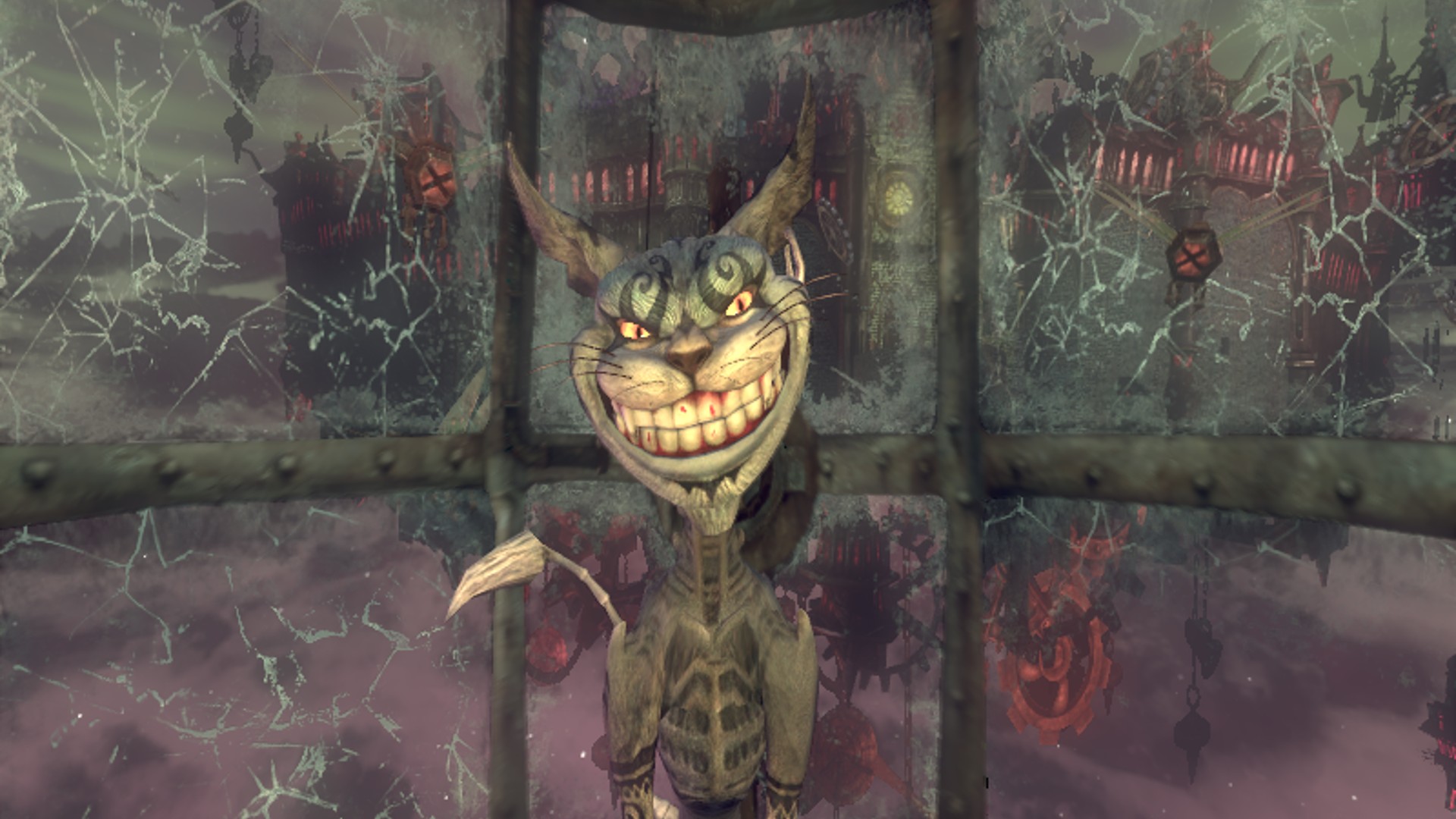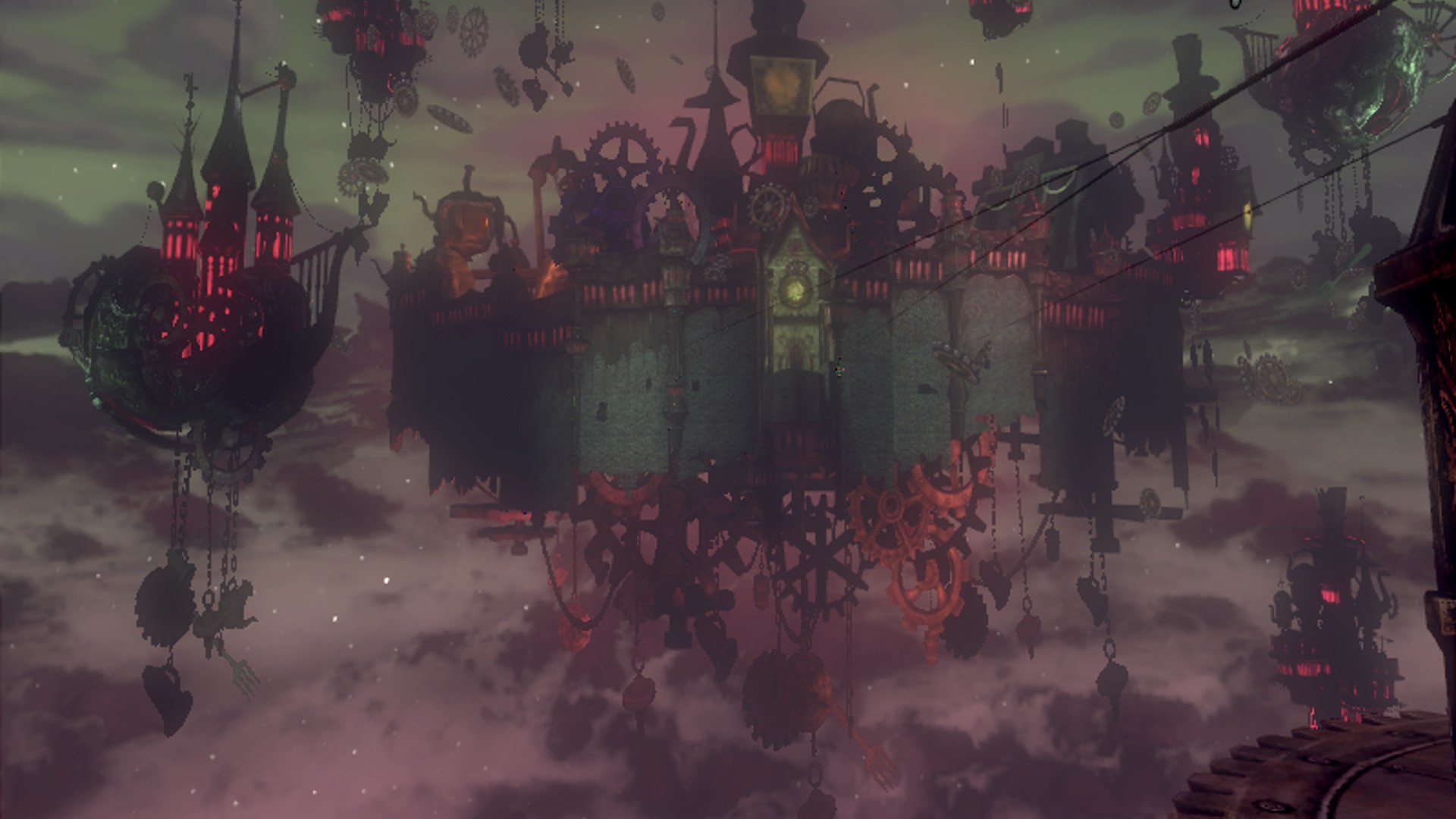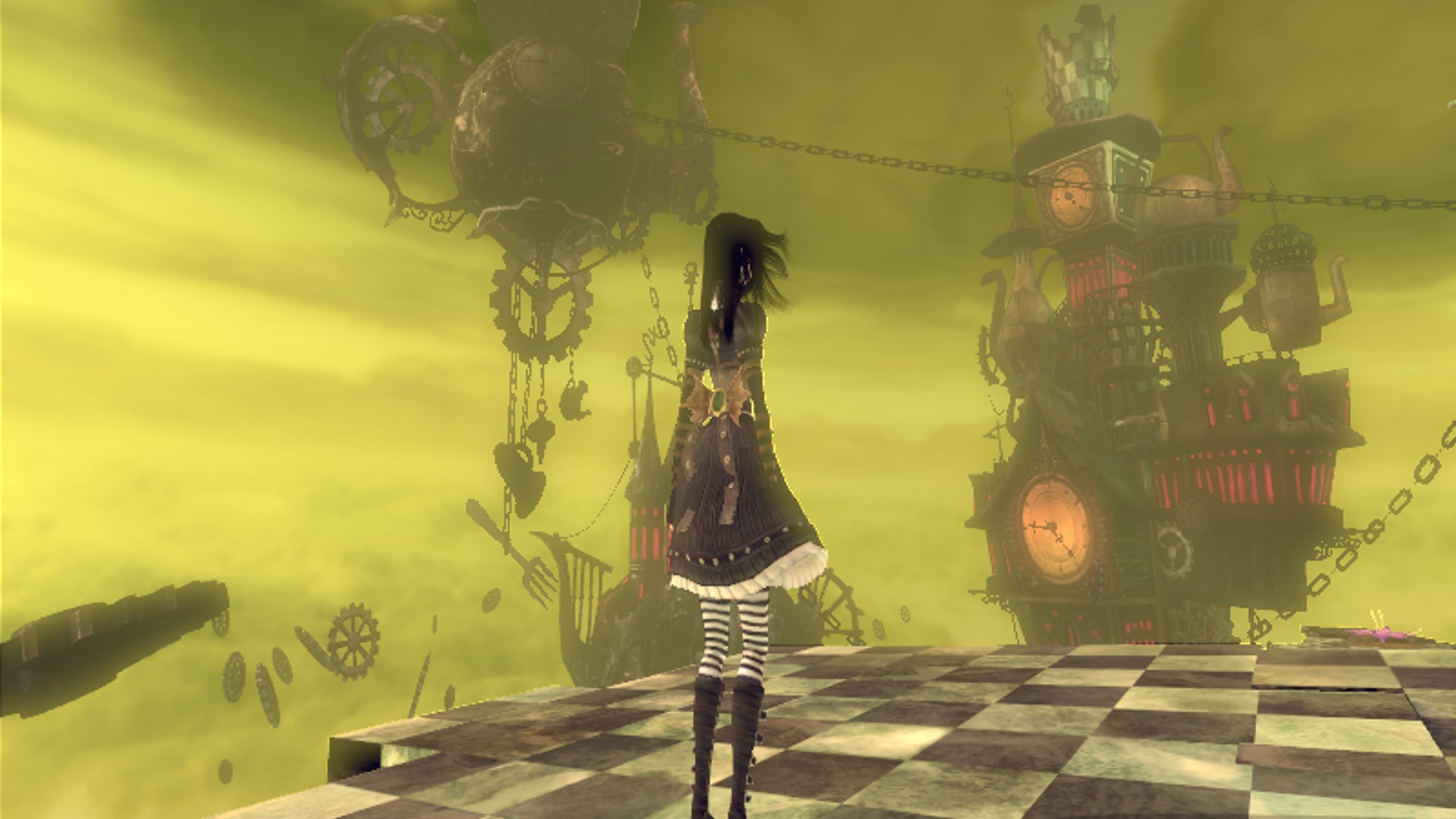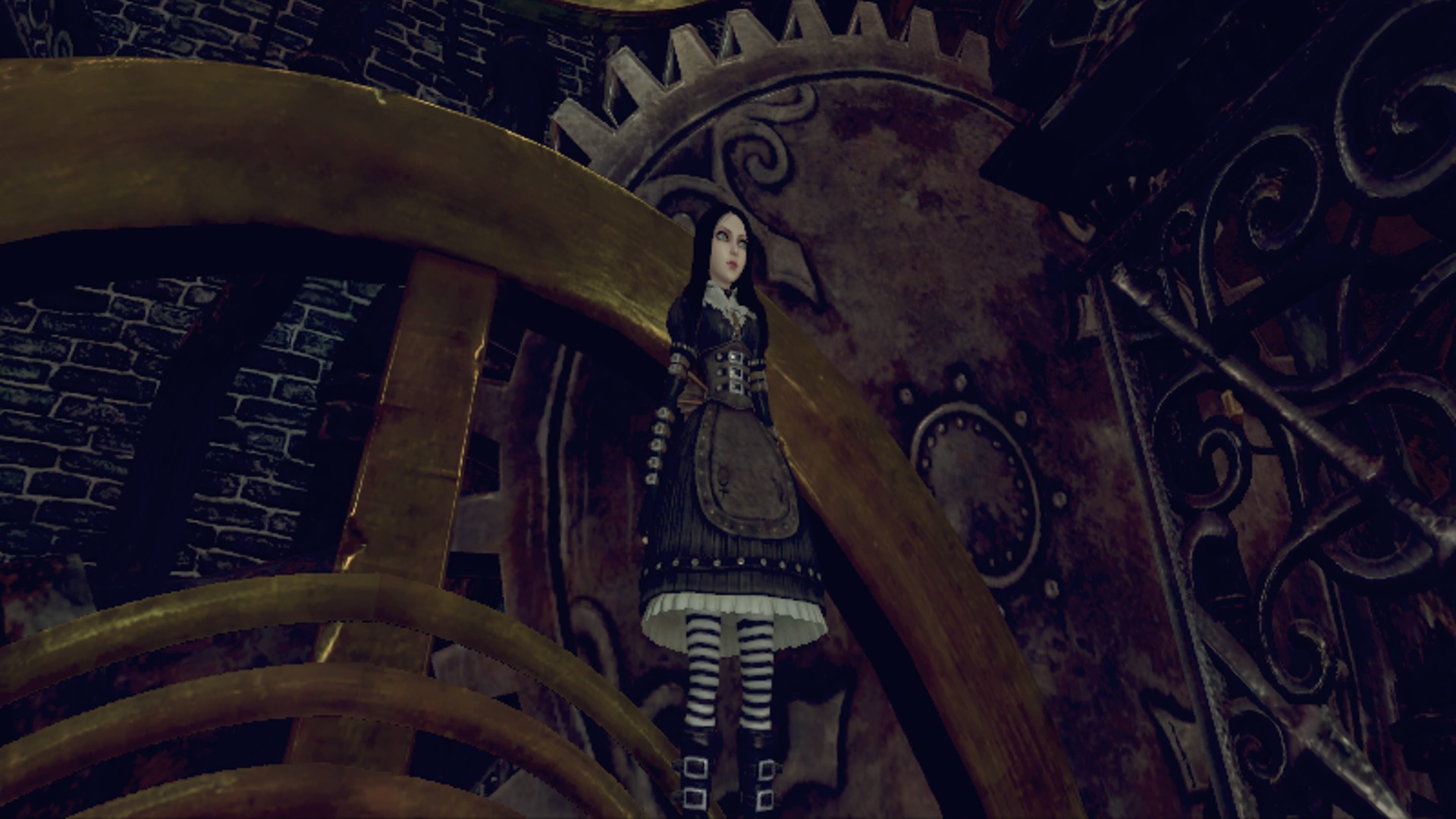
"Let instinct guide your behavior," the Cheshire cat drawls through bared teeth. "Suppress your need to lead." American McGee's Alice has one of the most disturbing, atmospheric introductory sequences of any game I've ever played, but this line from our gaunt feline companion has stuck with me for years.
As Alice fights her way through this nightmarish rendition of Wonderland, instinct truly does guide her hand. She has an arsenal of tools at her disposal, but the only real weapon is her own imagination. Wonderland is but a dream, after all; Alice is a traumatized, catatonic child, trapped in a psychological prison that she has no choice but to keep pressing through.
The recent news that sequel Alice: Asylum is dead in the water was disheartening to say the least. But the green-lit TV show adaptation has made me ever-hopeful for my old friend Alice; her legacy has long occupied a cozy niche of the gaming community, but perhaps there's a chance it might one day gain more recognition – not only as as a unique action game, but for its unflinching portrayal of tricky themes that many modern games still struggle with.
Terror as old as time


The best open world games will never give you style over substance.
Picking up Alice: Madness Returns again 12 years after its launch, the setting is still everything to me. McGee's art style doesn't fail to create a timeless magic, one that encapsulates a joint sense of childlike wonder and imminent danger. Buffeted by tiny blue butterflies as you leap between platforms, you stare out into the abyss, through the thick yellow mist and past the swirling cogs, to see turreted structures with eerie glowing windows that seem to be watching you intently. Using a pepper grinder as a minigun to battle goblins, floating pig snouts, and other creepy beasts is one thing, but doing so in an ever-changing world that directly correlates to Alice's broken state of mind is a unique metaphorical experience I've not found since.
In my mind, no game series has delivered on a gloomy gothic nightmare quite like it. This is largely down to McGee's two contrasting worlds: the reality of dreary Victorian London, and the magical yet treacherous Wonderland.
Madness Returns expands upon the first game not only by magnifying this visual contrast, but by giving the gameplay mechanics an entire rework. Gone are the tank controls and clunky combat of Alice; with a movable camera to provide better scope of your surroundings and an aim function to lock onto targets, Madness Returns embraces the action-adventure elements without sacrificing aesthetics.
As Alice's two worlds bleed through, we see it mirrored through stylized gameplay mechanics. I love how Alice's health is represented by roses in Madness Returns instead of a Sanity bar, to me a beautiful ode to its source material ("she's painting the roses red!") that has the added benefit of tidying up the HUD. I love how Alice collects shiny little teeth to upgrade her weapons, perhaps a gruesome yet contextual nod to the practice of back-alley dentistry in Victorian London. These details might be small, but just like our protagonist in her shrunken form, they're plenty mighty.
Cult leader

McGee's art style doesn't fail to create a timeless magic, one that encapsulates a joint sense of childlike wonder and imminent danger.
While McGee's detailed settings offer a timeless take on a literary classic, Alice as a character was totally ahead of the curve. Her contemporaries were scantily-clad female action heroes, as evidenced in some earlier titles among the best Tomb Raider games, but the Alice games have no interest in objectifying their heroine, whether that be in her clothing or the camera angles. This is because in Alice she is meant to be more childlike – her weapons are referred to in-game as "toys" – and although she's 19 in Madness Returns, Alice still has a childlike mindset as a result of her trauma.
The trauma framing Alice's perspective is another reason she was way ahead of her time. Aside from being one of the rare unsexualized heroines of the 2000s, we know Alice to be both flawed and strong. She's not a superhero, she's not an archeologist with military-grade combat training, and she has no real powers. She's just a sick girl armed with nothing but a grinning Cheshire Cat, but as he guides her through a fraught psychological minefield, she turns her perceived weakness into the power to defeat it.

It would have been easy to take the Disney route and create a twee kids game about Alice in Wonderland, but by drawing on darker interpretations of the text, McGee and developer Spicy Horse turn her into a symbol of strength. An honest yet empowering portrayal of mental illness is still an unfortunately rare find, even in modern games. An example of this is the troubled response to Bloober Team's adaptation of The Blair Witch Project, demonstrating the ongoing issues with how 'insanity' is communicated in games to this day.
Madness Returns, even in its name, doesn't skirt around Alice as a young girl battling persistent mental health issues. Her Wonderland is an escape from a horrible reality, and though she could choose to surrender to it, she fights on. Should McGee have succeeded in acquiring the license from EA, it might have been interesting to see Patreon-funded Alice: Asylum take shape with an indie publisher. For now, I'm happy to have her at all. To me and the rest of her fans, the Alice games will always stand out as meaningful, relevant, and downright beautiful entries in video game history.
Here are some other games to kickstart conversations about mental health, from The Town of Light to Neverending Nightmares.







